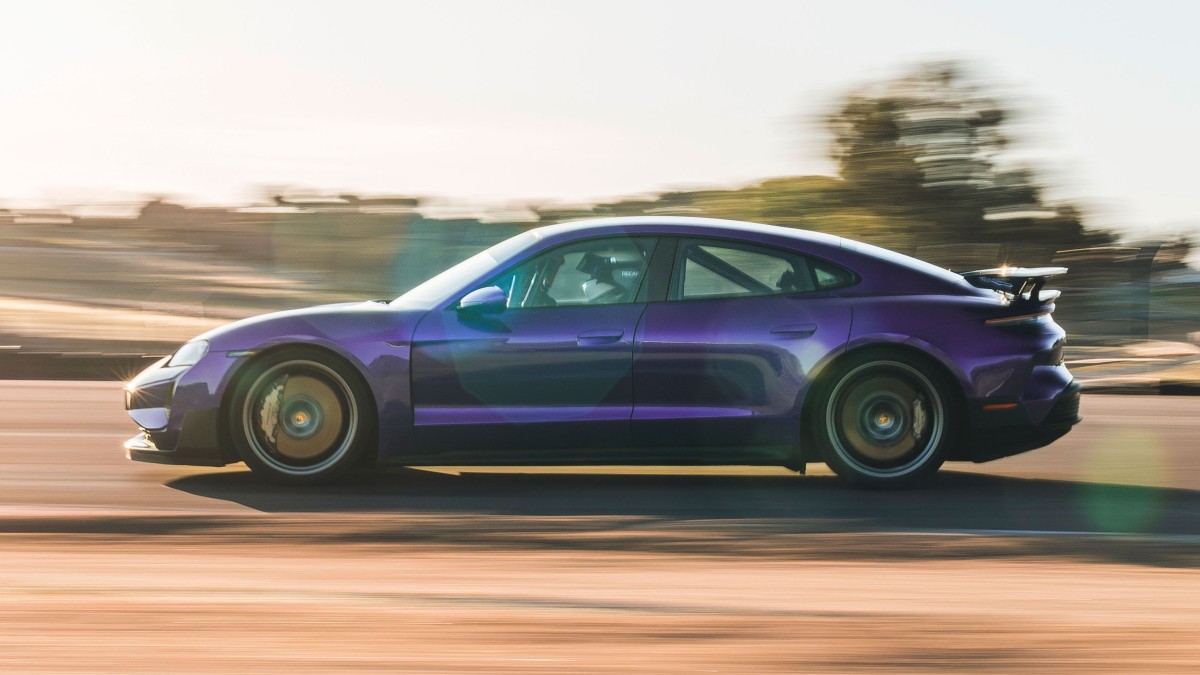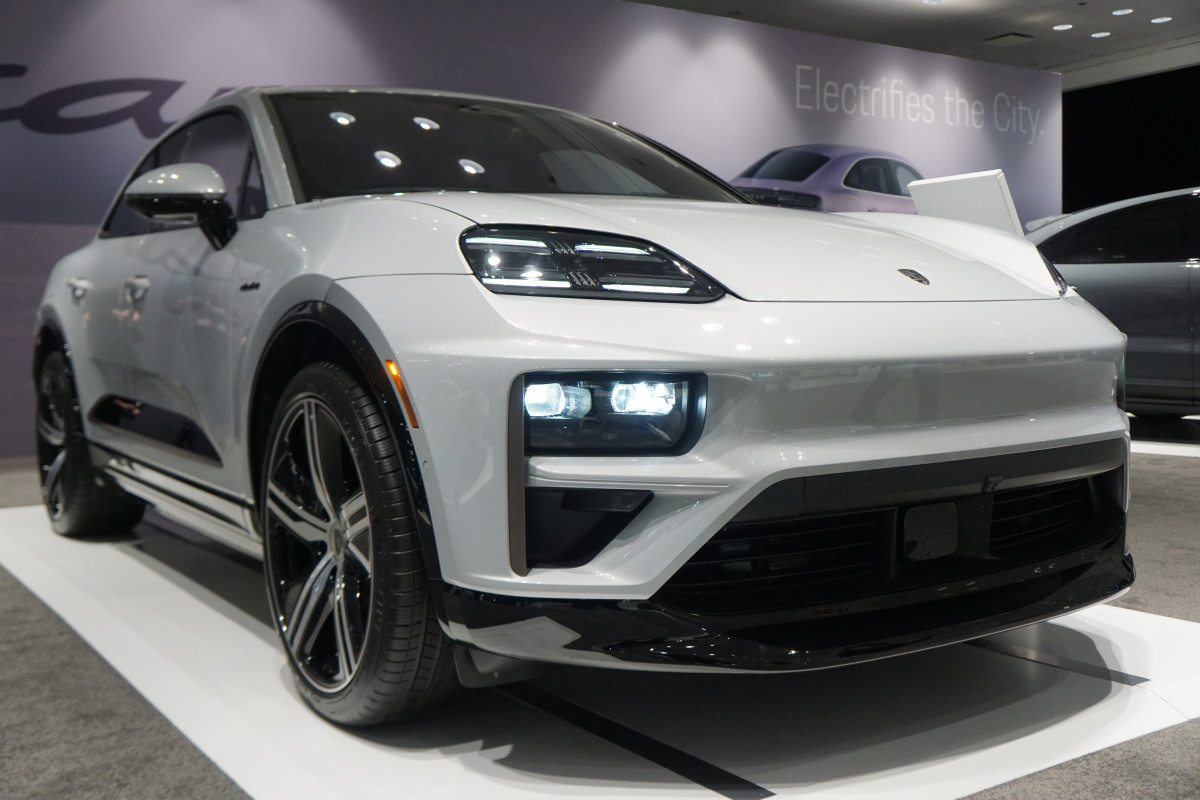
As emissions regulations worldwide become stricter, automakers from Toyota to BMW are expanding their lineup to include electrified vehicles like hybrids, plug-in hybrids, and battery-electric vehicles to adapt to these changes and the new world they are living in.
The diverse group of automakers adopting electrified powertrains also includes some of the most famous sports car makers in the world.
💰💸 Don’t miss the move: SIGN UP for TheStreet’s FREE Daily newsletter 💰💸
Within the past year, Lamborghini released a 907-horsepower plug-in hybrid called the Temerario, and this month, its spiritual rival Ferrari (RACE) unveiled a $3.9 million, 1,184-horsepower plug-in hybrid supercar called the F80, a direct rival to McLaren's $2.1 million plug-in hybrid supercar called the W1.
Related: Tesla's Cybertruck has an unusual and tiny new electric rival
Whether a buyer is looking to shell out millions for some of the fastest cars in the world or is choosing between a regular Honda Civic and its hybrid version, these decisions are up to buyers, regardless of any regulations that might dictate the future.

James Ochoa
Porsche takes a step back from ambitious EV plans
During a recent conference call's media Q&A, Porsche (POAHY) CFO Lutz Meschke admitted that recent conditions have led the company to radically dial back its electrification strategy in response to recent customer behavior it observed.
“A lot of customers in the premium and luxury segment are looking in the direction of combustion-engined cars, there’s a clear trend,” Meschke said.
“We will refresh our combustion engine cars, including the Panamera and the Cayenne, and of course, we will continue to rely on plug-in hybrids” Meschke added.
Related: Toyota chairman delivers cruel warning to EV owners
The automaker, which had penned future models exclusively as battery-powered EVs, is now looking for ways to shoehorn in gas-powered hybrid engines to diversify and save sales amidst a slowdown in EV sales and demand in key markets like the United States and Europe.
“As for our electrified lineup, we are very flexible when it comes to our production footprint. We can produce combustion engine, plug-in hybrids and electrified cars in one production line in Leipzig,” Meschke continued.
“When it comes to research and development, you’ll see more flexibility in the upcoming years. We will develop new combustion-engined derivatives [of our EVs] in order to give the right answer to customer demand.”
The latest news is a stark departure from statements Porsche made earlier in the year that would suggest that the luxury sports car maker was confident about its electrification strategy.
Previously, in a July 2024 interview with Automobilwoche, the German arm of Automotive News, Porsche production manager Albrecht Reimold said that the brand was going to phase out some of its popular gas-powered cars, such as the compact 718 Cayman and 718 Boxter sports cars and the Macan compact SUV, to fulfill its self-imposed goal, where 80% of its sales would come from electric vehicles.
More Business of EVs:
- Is Tesla in trouble? Massive price cuts signal demand crisis
- Elon Musk is sending mixed messages about Tesla’s only lifesaver
- Mercedes' new factory is the answer to a very common EV criticism
Porsche is struggling in an important market
The new developments with its EV plans come to light as sales of its sole electric model, the Taycan, have struggled throughout this past year. Global deliveries of Porsche's electric sedan fell by 50% within the first 3 quarters of 2024 and by 35% within the United States.
However, its performance is more worrying in another key market: China. What was once its most lucrative market is now Porsche's third-highest selling market behind North America and Europe, as year-end sales in the country fell by 29% as of Q3.
Meschke blamed the decline in Chinese sales on a tense economic situation, forcing buyers to forgo luxury spending in favor of value-oriented models.
Given that Chinese buyers have a variety of electric and gas-powered options made by domestic brands such as Xiaomi, BYD (BYDDY) , Li Auto (LAAOF) , XPeng (XPEV) and the brands under Geely (GELYF) , Porsche recognizes that it is in for a ride to survive in the People's Republic.
“China is an incredible challenge, not just for Porsche,” Meschke said. “In the future, we can no longer assume that China will return to where it was for European players.”
“We’re not giving up on the Chinese market, but we need to face the facts.”
Those facts include closing a significant portion of its Chinese dealership network. It is unknown how many outlets the brand will close, but the number will be adjusted to reflect an ability to sell 250,000 instead of 300,000 cars worldwide.
Porsche is not the only German luxury automaker facing these struggles. Mercedes-Benz is facing similar difficulties in the People's Republic, as Chinese sales dropped 17% compared to last year. In 2023, roughly one-third of all new Mercedes cars were sold in China.
Related: Veteran fund manager sees world of pain coming for stocks







